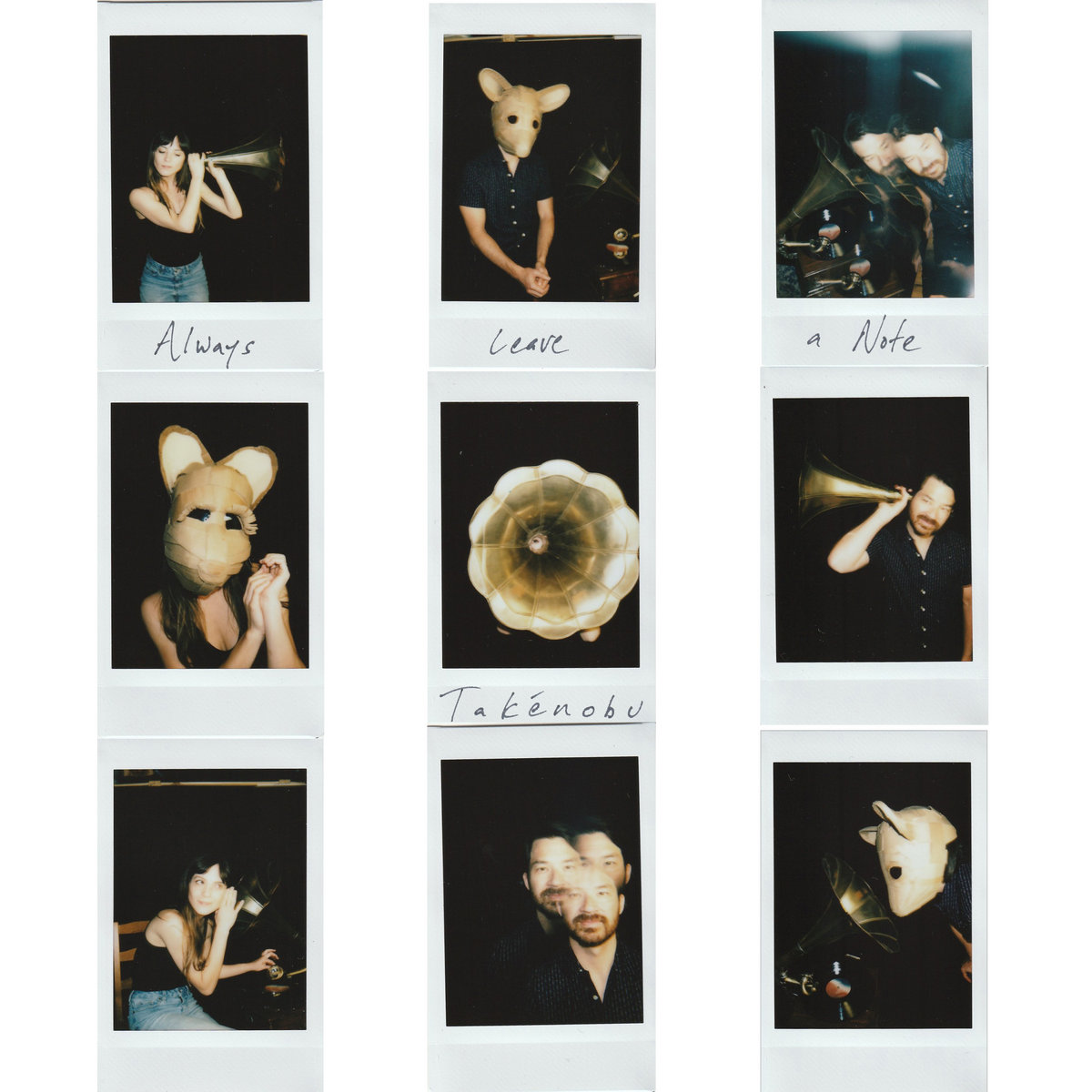Takénobu is the moniker for independent cellist and composer Nick Takénobu Ogawa, the Vermont-raised and now Atlanta-based artist who seeks to bring more hopefulness into the world through music. Loosely translated Takénobu – which is a combination of the Japanese Kanji characters in his father and grandfather’s names – means ‘iron will’. Even without the translation you might pick up on this determined attitude from Takénobu’s music. On his latest album Always Leave A Note he deliberately steered himself in this optimistic direction.
What began as a more anguished and political record was turned away from such dread before long. “[It] became a drag. It started to drain me. So I very consciously went in a more hopeful direction. It seemed like the only way to make it through this [pandemic],” Ogawa says of the album’s creation. Always Leave A Note is also the first album where Ogawa and his wife Kathryn Koch collaborated fully throughout the writing and recording process. Though Koch was present on previous album Conclusion, here her violin and additional vocals add a welcome airiness to Ogawa’s more upright tendencies.
Opening track “Travelling Light” sets the scene. A tale of an overworked individual in the capitalist machine (“Every day the same old song / Burn the midnight oil till dawn / Breaking my back for the sake of the company”), Ogawa and Koch set it with a breezy surrounding of swirling synths and strings, all skipping along on a buoyant beat. “Figured Out” centres on an equally troubled state of mind (“It’s just never enough / Doing all that I can / To meet the minimum / Feel like I’m losing touch”) but the music is delightful, likely to carry you along on the sweetest kind of cloud.
These are examples where the duo excel, especially as they lean into a more indie chamber pop style and sound. Like their bowed instrumentalist peers (Andrew Bird, Owen Pallett, and Kishi Bashi – the latter of which Ogawa was a touring member for in the past), Ogawa and Koch know how to make the most out of their respective instruments, particularly with the vibrant, bouncy percussive strums and twangs of their strings. The aforementioned tracks thrive on the energy of this sound. Elsewhere an additional rhythm section helps fill in the gaps; a snare helps snap the quavering “Got To Get By” into place while some metallic percussive touches on “Peachy Keen” help add sonic depth.
Where Always Leave A Note is lacking is in its overall spark, the kind that would be found on the best of Bird, Pallett, or Ishibashi’s music. Ogawa’s credentials as a composer speak for themselves (he has a rich discography including multiple film soundtracks behind him) but still there’s something a little wooden and angular about the tracks here. Layers of strings meticulously swim around and between each other, but there’s a missing sense of levity and spontaneity. Koch’s violin certainly adds a brightness to Ogawa’s more rigid cello tone at the best of times (the Middle Eastern flourish on the deep and electric “Redux”, the warm edges of “Tranquility”), but there’s almost a want for that anguish and despair that the duo originally wrote in the hope it might spark an exciting fireball into existence.
Still, Always Leave A Note does follow through with its aim of being a record of hope. While Ogawa might write in plain, relatable terms (again leaving plenty of room for what feels like a truly personal take), his optimism is always present; indeed four of the 11 tracks contain the phrase “It’s gonna be alright.” Final song “Tranquility” takes a little time to find its footing, but equally takes a good portion of its seven minute runtime to drive home its determined message: “I’m trying to find my peace of mind.” With an iron will and an upbeat attitude, Takénobu most definitely will find it somewhere along the line.

